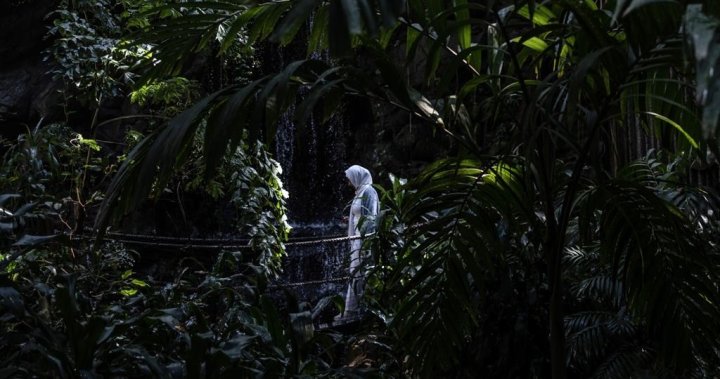“He is a good father and very helpful around the house. We need him home and miss him.”
Myles Sanderson’s partner Vanessa Burns read her words from a letter she had written to the Parole Board of Canada asking for his statutory release from prison.
Only months later, he would go on to kill 11 people on James Smith Cree Nation and the nearby community of Weldon, Sask., and injure 17 others in the path of his stabbing spree.
At the Saskatchewan coroner’s inquest into the deaths on Thursday, Burns revisited a 15-year cycle of domestic abuse at the hands of her partner Myles Sanderson, including a particularly brutal assault two days before his rampage.
“No matter what I did, this person would always come back,” Burns said. “He always found some way to get in contact with me.”
Burns said they were on their way to James Smith Cree Nation on Sept. 2, 2022, where they had been selling drugs, when he started beating her with a scale while she was driving and then tried to run her over after pushing her out of the vehicle.
Get the latest National news.
Sent to your email, every day.
According to Burns, Sanderson would lie about his sobriety, the number of charges he had and constantly take advantage of her.
“He used me to get out of the penitentiary,” Burns said.
At the beginning of their relationship, she described him as “funny” and “charming” and years later, let him move in with her after being released from the penitentiary despite a no-contact order.
As time went on, Burns described a relationship filled with manipulation, cheating and love bombing.
After the assault on Sept. 2, Burns hid in Saskatoon. She heard Myles and his brother Damien had invaded a home and then stabbed her mother and father, Joyce and Earl, on Sept. 4.
Burns thought she was next.
“I started to panic and got the kids up and told them, ‘We gotta get out of here,’” she said.
She and her family learned her father died while they were hiding from Sanderson at a Tim Horton’s.
“I wish I would have left him sooner,” Burns said, but added she didn’t know how.
At one point in their relationship, Burns said she went to a women’s shelter but it was isolating and not accommodating for her five children.
“So, I went to back to Myles.”
Burns said she knew there was some relief amongst her children when everything was over. She said one of them commented, “at least you won’t be getting beat up anymore,” when they heard the news that Sanderson was dead.
If she had more support and available services, Burns said she maybe she would have left Myles sooner.
“You gotta learn to love yourself as well. Love your children. That is how it’s going to break cycles.”
She encouraged domestic violence survivors to report all incidents to the police and asked First Nations leaders to pay attention to the members of their communities.
“I didn’t know anything about mental health until it was too late.”
— with files from Global News’ Ashleigh Stewart
© 2024 Global News, a division of Corus Entertainment Inc.





